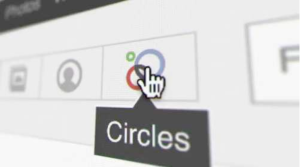By Emma-Julie Fox
Social media has been identified as an essential tool for Internet marketing for quite some time now, but some people are still a bit unsure as to how the concept works. Among the aspects of social media marketing that many (unless if they’re working for a reliable SEO company) still find a bit confusing is link building. You would therefore do well to get a few tips on how you can build valuable links through social media. Before we get to these tips, however, it may be wise to go over the reasons why social media is deemed important for online marketing purposes.
Perhaps the biggest reason why social media is a huge thing in Internet marketing right now is that everyone is using it. Probably everyone you know is on Facebook, Twitter, Google+, or any other social networking site. This is why making your presence known in the most popular social media sites has become somewhat of a marketing requirement these days. Okay, then, how do you take advantage of social media for link building purposes? Read on to find out.
1. Social Sharing
Let’s say you have a Twitter account. You could tweet about the latest hot topic and then provide a link to one of your web pages that has an article or video related to the topic you tweeted about. You thus create the possibility of your followers retweeting your post (and your link) and allow your link to reach more people.

2. Social Profiles
The most popular social networking sites (Facebook, Twitter, LinkedIn) may use nofollow links, but there are other social media platforms that allow you to place a link to your company website on your profile.
KnowEm is a good place to start looking for social networks you can create your link building profile on. When you get to the KnowEm Home Page, all you need to do is provide your preferred username and then click on the Check It button.
You will then be given a list of the most popular social networks where you can use your chosen username. You may then check if any of the available networks lets you add HTML for your anchor text links. Of course, this doesn’t mean you can’t use sites like Facebook and Twitter for link building purposes. You can add your link at the end of the information you provide in the About section and some people are bound to notice.
3. Google+
You may not realize this, but when your links get shared by people you’re connected to on Google+, those links will ultimately appear on top of search results. For example, if you posted an article on link building and a couple of people you’re connected to on Google+ shares the link to that article, the chance of that link being ranked among the top search results for a query on link building significantly increases.

Now, you may be wondering how you can use Facebook, Twitter, and LinkedIn for link building. Here are a few tips:
Facebook has over a billion active users and getting even the smallest percentage of these users to ‘Like’ your Page can go a long way towards helping you grow your business. Post relevant status updates, photos, and videos on your Facebook Page and people who are interested in the product or service that you offer will be sure to appreciate your willingness to offer an abundance of information.
This could encourage them not only to ‘Like’ your Page, but also to promote it to their Facebook friends. At the very least, a Facebook Page can increase your online visibility and get people to click on the link you provide on your About section.
 Twitter
Twitter
Perhaps the biggest advantages of Twitter are its accessibility and the fact that it promotes interaction. Basically, all you need to do is tweet something interesting and relevant, and you can expect other people to either respond to that tweet or retweet it.
By including a link in your tweets from time to time, you can successfully extend the reach of your web pages. You can benefit even more from Twitter by following influential people in your industry and interacting with them as much as you can. Of course, you shouldn’t forget to respond to queries, comments, and complaints from your target market as well. One of the best ways to earn their trust is to make them feel that their voice matters.
The best thing about LinkedIn is that it is mostly used for professional purposes. The content promoted by people within your LinkedIn network is therefore a lot more relevant to your industry. In the same way, any relevant content you wish to share is best shared on this platform, as the people you’re connected to on this site are likely to work within the same industry and are therefore interested in what you have to say. They are also more likely to link back to relevant links that you provide.
There are, of course, a number of important things you need to bear in mind when you use social media for link building. For one thing, you should avoid too much self-promotion, as that can be interpreted as spamming and get you reported.
You should also ensure that the content your links lead to is of excellent quality so that other users won’t get tired of clicking your links. It is also advisable to keep sharing valuable information even when you don’t have links to add. This should increase your credibility and help you earn your target market’s trust and loyalty.
Emma-Julie Fox writes for Pitstop Media Inc, a Vancouver company that provides SEO services to businesses across North America. If you would like to invite the author to write on your blog too please contact www.pitstopmedia.com



 Twitter
Twitter